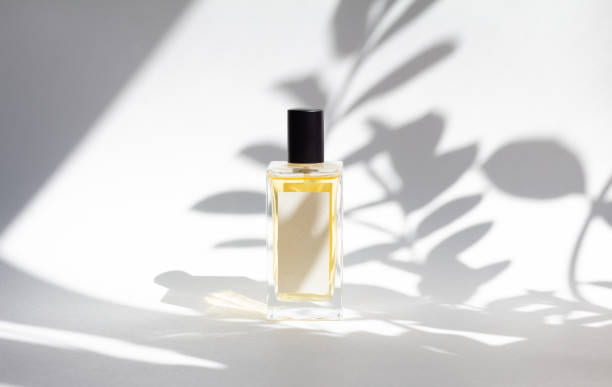This blog post is based on a thesis completed in 2022 by PGE students – Capucine Appercé, Clémence Ritter-Mersch and Mathilde Chambon – under the supervision of their professor Anissa Pomiès.
Over 5,000 years old, associated with life and death, with the profane and the sacred, with beauty and well-being, with hygiene and carnal pleasures, perfume has a very special place in our daily lives. Today, more than 152,000 bottles of perfume are sold every day in France, the equivalent of one bottle per second. Perfume crystallizes aestheticism and hedonism. It evokes sensations, images, and emotions, as few objects can do. By surrounding themselves with meticulously chosen and loved objects such as perfume, consumers produce meaning and, we argue, build their own identity.
Our research thesis aims to understand how consumers build their identity through perfume consumption. While many works have studied identity construction through fashion consumption, we decided to focus on perfume. To do so, we build on prior research showing that perfume is a revealing element of consumers’ identity trajectories. In other words, what does my perfume say about the person I am or want to be? Marion (2003) argues that people co-construct their appearance, define themselves socially, and express life aspirations through consumption. Building on the work of Marion (2003), we ask: « How does perfume consumption fit into consumers’ identity quest?”
To answer this question, we reviewed the academic literature and carried out a qualitative study. We conducted 12 semi-structured interviews with consumers. We focused on women, as the consumption of perfume differs greatly according to gender and is directly correlated to appearance. Indeed, Chollet (2012) analyses the concern for appearance as a social injunction made to women. We targeted three specific age groups, defined by Erikson (1972) as pivotal in psychosocial development, as they are part of the seven identity crises that individuals undergo during their life: 17-20 years, 43-47 years and 60-66 years.
The consumption of perfume throughout life
Perfume consumption in adult life is influenced by consumers’ primary socialization. As emerging adults, consumers draw their inspiration from the taste and consumption habits of their mothers. They are in a stage of identity construction in which the mother plays the role of example. Consciously or not, emerging adults tend to imitate their mothers, which does not prevent them from changing perfume often. Later in their life, consumers refine their consumption behavior without completely breaking with their past preferences. They add a personal touch to better align their perfume with the way they perceive themselves. They look for a fragrance that resembles them. They are loyal to the fragrance they have chosen and keep it for years.
Consumers rely on their own traits of character to choose a perfume. According to participants, the characteristics of perfume should match traits of character. This implies changing perfume according to one’s evolution, which mostly ensues from aging and the events of life. This link is so deeply imprinted that some participants consider it impossible to offer a perfume to someone because the perfume choice is an intimate decision. Only people in a close circle can choose the right perfume. However, consumers also rely on role models (and repulsive figures) to define not only their preferences, but also the olfactory and symbolic dimensions of their identity. Role models can be acquaintances, people they admire, or branded muses. This shows the influence of marketing on the capacity of perfumes to convey meanings and images, which, in turn, determines consumption choices. Interestingly, the role played by marketing and communication on consumption choices is minimized by our participants who rather emphasize associations of ideas they consider personal.
The social and symbolic dimensions of perfume consumption
We found that perfume consumption has a strong social dimension. Family members, friends, and colleagues have an impact on consumers’ perfume choices through the way they perceive them. We found that women who define themselves as soft or shy cannot bear to wear perfume they consider too strong and that stands out. Furthermore, their consumption behavior is influenced by their daily interactions. The youngest women in our sample wear perfume when they go out, while women around 45 wear perfume at their workplace. Women over 65, who are retired, use perfume at home whether they are alone or with their family.
Moreover, the consumers we interviewed consider perfume as a luxury, precious, and valuable product. It is very important for them to wear perfume from a luxury brand and to buy it is a perfume shop. They believe that cheaper perfumes, such as those found in supermarkets or copies of well-known perfumes, are of lower quality. Luxury and perfume are intertwined, even when consumers do not buy luxury brands for their clothes and accessories.
Perfume and the extended-self
Perfume is not a mere utilitarian object. Beyond its luxurious, hedonistic and aesthetic dimensions, perfume plays a predominant role in consumers’ identity co-construction. Unique practices specific to each person are involved in perfume consumption: ways of wearing it, displaying it or storing it, rituals, and frequency of use. It is an intimate object which is part of consumers’ extended-self.
Our study shows that consumers use perfume to produce meaning and to create their own semiotic universe. They define themselves in relation to their perfume and seek to show the world a mirror of their own identity through their perfume. Perfume has a strong collective and symbolic dimension, and it is often used to differentiate oneself from others.
To go further and complement our work, it would be interesting to analyze the consumption behavior of male consumers, who may have a very different relationship with perfume than women. Moreover, it could be relevant to look at the links between perfume consumption and identity in another country than France – the latter being very culturally marked by the perfume universe – and to observe the differences and similarities with this study.


Commentaires récents